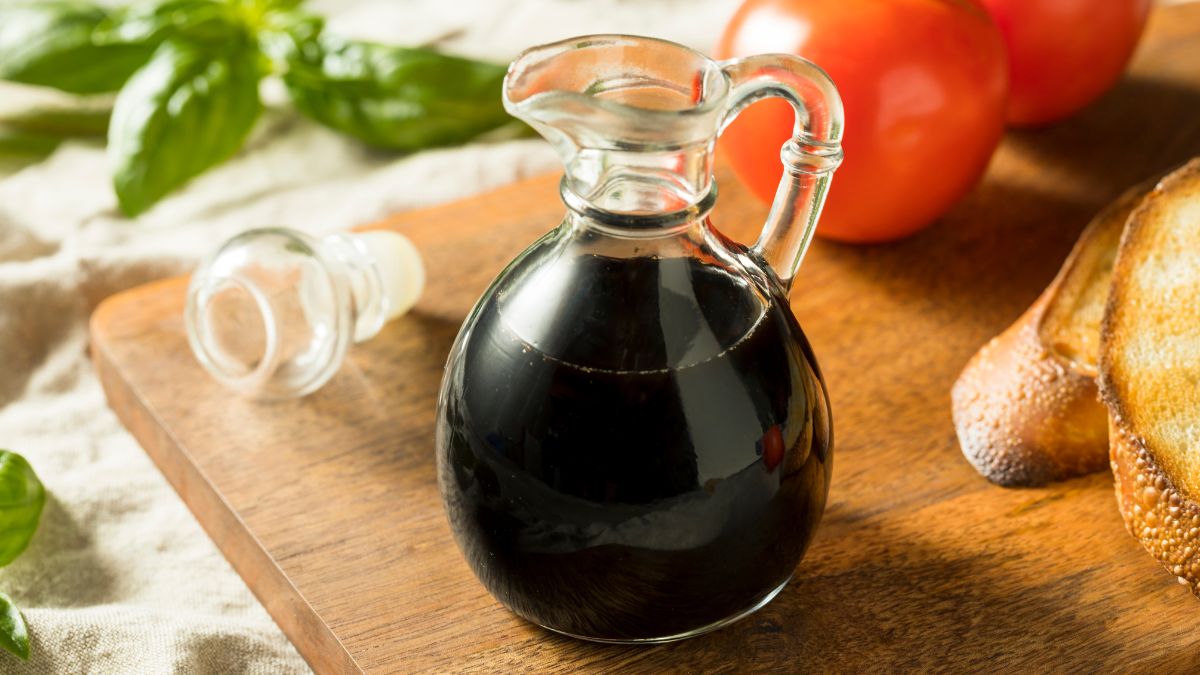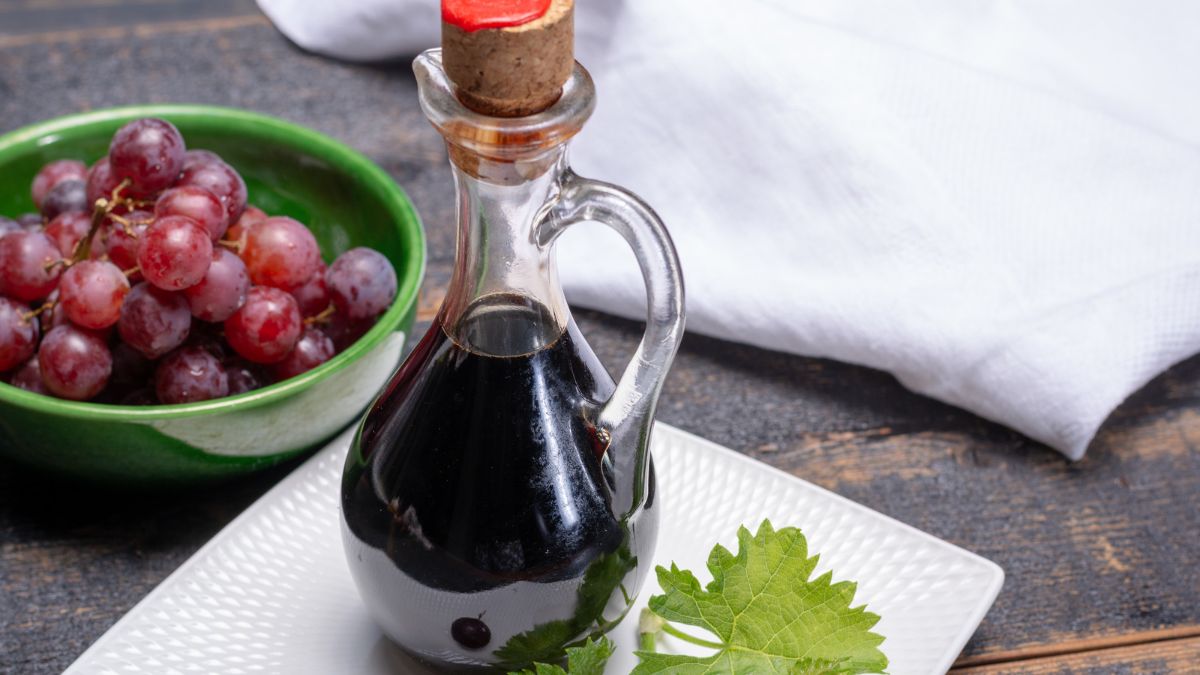Does Balsamic Glaze Need to Be Refrigerated? Storing Tips


Originating in Modena, Italy, balsamic glaze’s complex flavor is often used to add richness to a dish. Whether it’s a green salad, a beautiful roasted duck breast, or an ice cream, the balsamic glaze will elevate the dish to a new level and give it an unforgettable aftertaste. Even though delicious, balsamic vinegar sauce is not something, we will use every day. Does it need to be refrigerated so it won’t spoil and to keep its initial quality?
Balsamic Glaze doesn’t need to be refrigerated to maintain its quality. It doesn’t even need to be refrigerated to not go bad. Balsamic glaze can last for decades or even centuries and still be safe to be consumed. Just make sure you store your balsamic glaze under the right conditions, and who knows if you can pass it down to your granddaughter.
Balsamic glaze is like wine, made from grape must (whole pressed grapes)wine: it can be preserved for many years and gets better with age. Of course, you need to keep it in a cool place, with the cork or cap securely on, to ensure the quality, flavor, and color will remain the same over time. But that is all you have to do to ensure your balsamic glaze will be good for consumption for decades.
How to Store Balsamic Glaze?
To preserve your balsamic glaze’s quality for longer, the best places to store it are cool, dry, dark spaces. The balsamic glaze doesn’t store well in heated places or places where it is exposed to direct light, as these will quickly deteriorate the liquid inside the bottle. A cabinet, a pantry, or a refrigerator are all good options for storing balsamic glaze.
Almost as important as where you store your balsamic glaze is how you store it. It is of the utmost importance to ensure it is correctly corked (or that the cap is secure, depending on the bottle you have). Even though contact with open air won’t make the balsamic vinegar go bad, it will alter its’ taste, quality, and color. With time, if not closed correctly, the balsamic vinegar will lose its distinctive flavor and become bland.
You might ask yourself if this applies to both traditional and store-bought glazes. The answer is yes. Even though the first is produced with no added preservatives and the second with those added preservatives, the rules apply similarly. Maybe the taste of the commercially produced might change faster, but still, it will be ok to use if you follow the above and store it in a safe place.

How Long Does Balsamic Glaze Last?
Considering the advice in the last section, your balsamic glaze will last indefinitely. You read correctly; balsamic glaze can last indefinitely, like forever.
But you ask, is this still true if the balsamic glaze bottle has already been opened and used? Yes, even if the bottle has been opened and used before. The balsamic glaze will last long (to not repeat forever). I can see your confusion. How is this even possible? Simple, balsamic glaze can last indefinitely because the contact with oxygen won’t deteriorate it or make it go bad.
Even though it won’t spoil it, contact with open air can change its flavor. With time, if you keep your balsamic glaze bottle open or not properly closed, its taste can become more subtle, and the color can also get a different tone. But that is all. The glaze will still be ok for consumption even if it doesn’t taste or look the same as in the beginning.
Anyways, if you want to guarantee you get the maximum flavor possible out of your balsamic glaze, you should use it in the first three to five years (after you open the bottle for the first time). It is ok if you don’t, though. In the end, it’s just a matter of preference, not a matter of good or bad.
Does Balsamic Glaze Spoil?
No, the balsamic glaze doesn’t spoil. Even if you don’t close your bottle properly or if you leave it in direct contact with light. Your balsamic glaze will not go bad. Its quality might be affected, but the glaze itself won’t be ruined or spoiled.
But then you ask. If the balsamic glaze doesn’t spoil, why does the bottle have a best-consumed before? The best-before date is just an indication to assure maximum quality. This means the balsamic glaze won’t be spoiled after that day. It might start to lose its taste, and its overall quality and richness might be affected, but you can still use it.
And now you ask: ”but what about those sediments at the bottom of my bottle? They sure are a sign that my balsamic glaze is going bad.”
It is true that, at some point, you might notice that some kind of sediment has started to form at the bottom of your balsamic glaze bottle. Don’t worry. Your balsamic glaze has not gone bad. The sediment you see is just a natural by-product of the balsamic glaze-making process. You can still use your balsamic glaze as it’ll remain safe to be used, and its quality won’t be affected.
In conclusion, the balsamic glaze doesn’t go bad, and even if the date on your balsamic glaze bottle is close to the end, you don’t have to trough it away. You can still use it as it is still good. However, if you feel that the taste has changed and it’s not as exquisite as it was in the beginning, maybe it’s time for you to buy a new one.
Will Balsamic Glaze Go Bad If Not Refrigerated?
Balsamic glaze won’t go bad if you store it in another place that is not the refrigerator. Keeping your balsamic glaze in the refrigerator is a matter of taste. Some people prefer not to, and others like it better when it is refrigerated.
If you use it, for example, as a dressing for your salad and like the cold effect it adds to your vegetables, then you might keep your bottle in the fridge. But you don’t have to. Your pantry or a dry, cold cupboard are safe places to store your balsamic glaze without it losing its quality.
To or not to refrigerate is just a matter of preference, never a matter of necessity.
